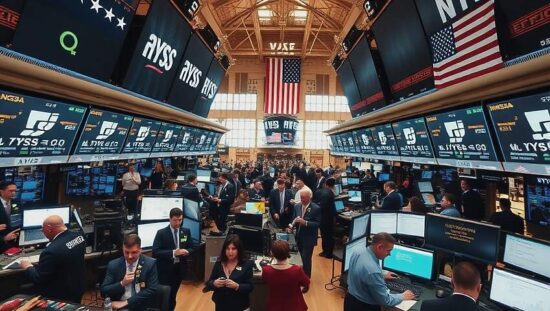Market jitters and geopolitical anxieties weighed on the German DAX index on Wednesday, causing a slight decline despite an initially promising start. The index closed at 24,181 points, a 0.2% decrease from the previous day’s close, reflecting a pervasive sense of caution among investors.
Market analysts attribute the fluctuating performance to a dearth of fresh economic data, placing increased focus on the ongoing earnings season. Andreas Lipkow, a leading market commentator, highlighted the palpable uncertainty permeating financial markets, pointing to the record highs reached by precious metals like gold and silver as a symptom of this instability. “Investors are clearly hedging against potential risks” he stated.
A key driver of this uncertainty revolves around the ongoing trade tensions between the United States and China. Lipkow cautioned that a potential escalation of these tensions, while currently speculative, could trigger a broader market correction. “The relatively high valuations across numerous US sectors suggest the potential for a significant downside correction that would inevitably impact German equities” he warned. This concern underscores the interconnectedness of global markets and the sensitivity of European economies to US trade policy.
The day’s trading saw BASF, Brenntag and Beiersdorf leading the Frankfurt stock exchange, while Rheinmetall lagged behind, reflecting a mixed performance across various sectors.
Beyond equities, energy markets experienced downward pressure. Natural gas prices fell to €32 per megawatt-hour for November delivery, representing a 1% decrease and potentially translating to consumer prices of around 8-9 cents per kilowatt-hour if sustained. Similarly, Brent crude oil dipped to $62.04 per barrel, a decline of 35 cents or 0.6% from the previous day’s close. This reduction in energy costs offers a small respite for consumers and businesses, but also reflects broader concerns about global economic growth and demand.
The euro strengthened against the dollar, trading at $1.1635, demonstrating a slight rebound but remaining within a range indicative of persistent economic anxieties. The fluctuations across these markets paint a picture of an investor base grappling with conflicting signals and carefully assessing the potential for further economic turbulence. The situation highlights the vulnerability of the German economy to external shocks and the increasingly complex geopolitical landscape shaping investor sentiment.





